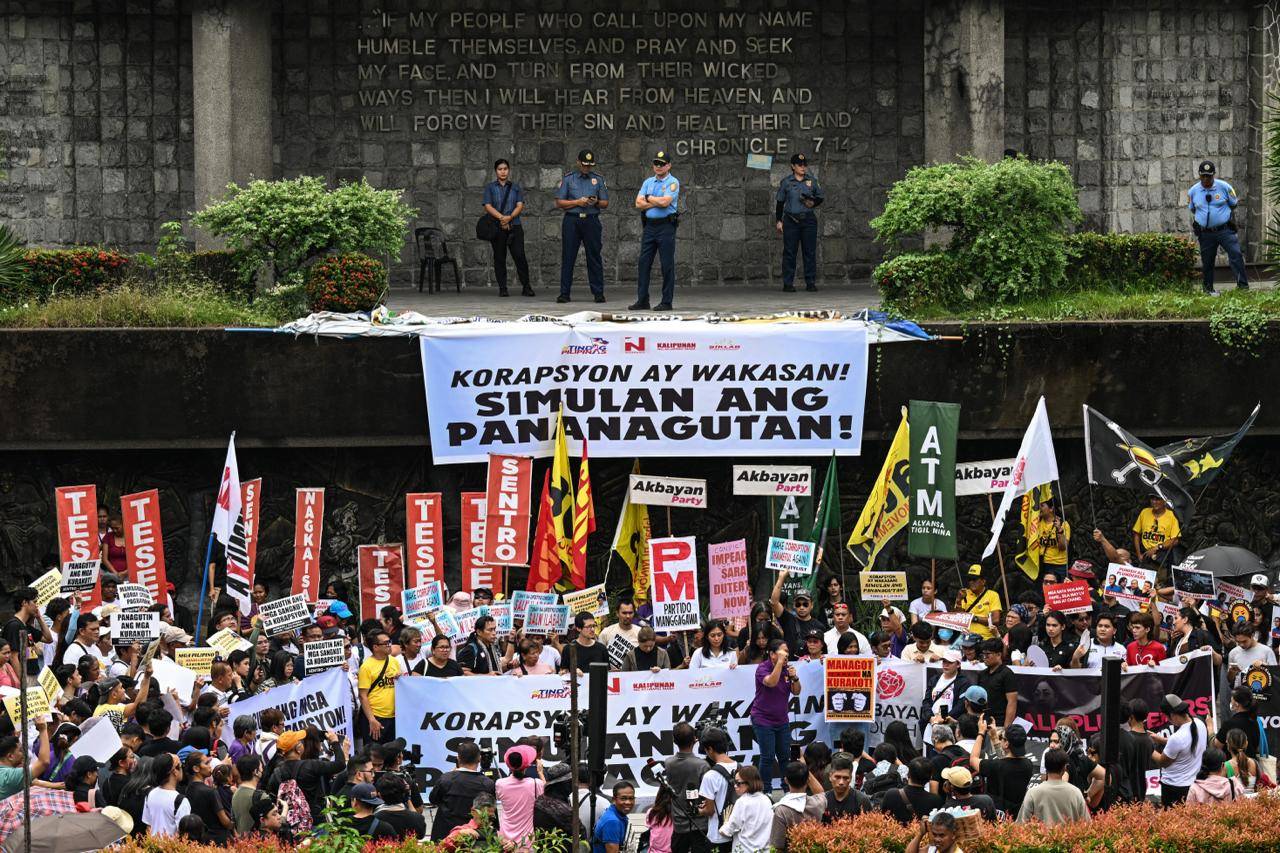Gen Z and their enduring empathy

From mass mobilizations concerning issues of race, gender, and women’s rights in the West to assemblies fighting for improved housing and wages in the Philippines—“laging galit,” “pumasok nalang”—too often have the youth been criticized for having something to rally for.
Today, Asia faces an unprecedented outbreak of protests across the region: Nepal, where a social media ban resulted in violent protests that left 72 people dead and the resignation of Prime Minister K.P. Sharma Oli; Indonesia, where backlash from a reported $3,000 housing allowance on top of a politician’s salaries resulted in multiple protest-related deaths and the resignation of several government officials; and currently, the Philippines, too.
Filipinos have a lot to be angry about. The lackluster transportation system, the protection of political dynasties, and more recently, the normalization of flooding in the country as billions of pesos have been mismanaged and stolen in the form of intentionally substandard or even non-existent flood control projects—more specifically, P545.64 billion across 9,885 flood control projects spent by the Marcos Administration between July 2022 and May 2025.
While protests haven’t necessarily become as violent as those in Nepal and Indonesia, Filipinos, particularly the Gen Z, have been clear in their rage. And yet, unlike other protests and concerns that they’ve been vocal about, no one’s complaining about them “overreacting.” Why? Because it affects everyone the same way. You don’t have to live in regularly flooded areas to be mad at the institutionalized theft taking place in our government.
But what about the less popular issues that not everyone exactly relates to? Are they any less important than the flood control scandal? Who fights for these people? From the youth mobilizations in Nepal and Indonesia to the simmering rage in the Philippines, we only have Gen Z and their empathy to thank.
The tipping point
To add to the ongoing Israel-Palestine conflict and the overall political instability in various governments, it can be easy to seek stability in the middle of instability. But the sudden outbreak of violent protests around the world is no conspiracy. It’s a fitting response to a normalized abuse of power—a tipping point, so to speak.
“Other protests, while politically driven, are less about anti-democratic behavior by incumbent regimes and more about intense frustration over poor governmental responses to disasters and weak governmental accountability generally,” says Thomas Carothers and Judy Lee of Carnegie Endowment for International Peace.
In the Philippines, corruption has been a widely accepted fact for decades—perhaps even generations. The millions, rather, billions of pesos that have reportedly been stolen through faulty flood control projects almost doesn’t seem surprising. In fact, it just validates a truth we already know.
But the tipping point is as plain as day: the flaunting of ill-gotten wealth and the indulgence in luxuries that the majority of Filipinos will never experience—all while knowing that said wealth did not result from a single day of honest hard work—a slap in the face of every Filipino.
“Of course, they are enraged. They are angry. I’m angry. We should all be angry, because what is happening is not right,” says President Ferdinand Marcos Jr. in response to the joint rallies scheduled for Sept. 21. “You let them know your sentiments. You let them know how they hurt you, how they stole from you; you shout at them and do everything, demonstrate. You just keep it peaceful.”
Choosing empathy in the digital age
The heavy use of social media has been linked to an increased risk of depression, anxiety, and psychological distress. Excluding instances of bullying and perceived loneliness, one explanation for this phenomenon is the increased exposure to widespread pain and suffering at an unprecedented scale: one 10-minute scroll on TikTok will likely expose a user to footage of a bombing in Gaza, and a few posts later, reports of a police brutality case somewhere in the United States.
“Seeking out information should ‘lead to a more positive psychological state.’ But when people feel like there is little they can do, such as when COVID-19 infection-prevention guidance kept shifting in the early months of the pandemic, they can develop a feeling of learned helplessness,” writes Charlotte Huff of the American Psychological Association.
Call it “media saturation overload” or “headline anxiety.” The fact of the matter is that access to negativity in a manner unlike ever before has pushed people to disconnect in a world that is supposedly so connected.
And yet, in spite of this pain and suffering, the Gen Z has chosen empathy over anything else. Amidst their own circumstances and experiences, they’ve chosen to take on the burden of emotion and fight in battles no one is asking them to take part in.
Shari Dunn, in her essay “The War on ‘Woke’ is a War on Empathy, and It’s Working,” puts it best: “Empathy is the bedrock of human relationships. It allows us to connect with others on a deeper level and respond compassionately to their needs and emotions.”
As they say, “Kapag namulat ka na, kasalanan na ang pumikit.” And no one else embodies it better than today’s youth.

















